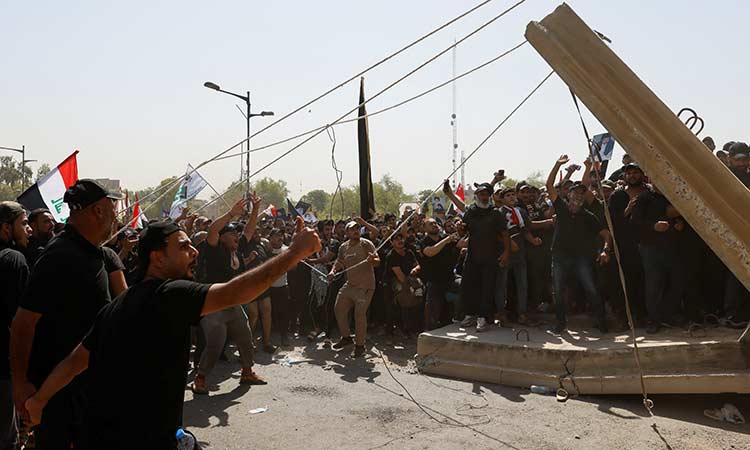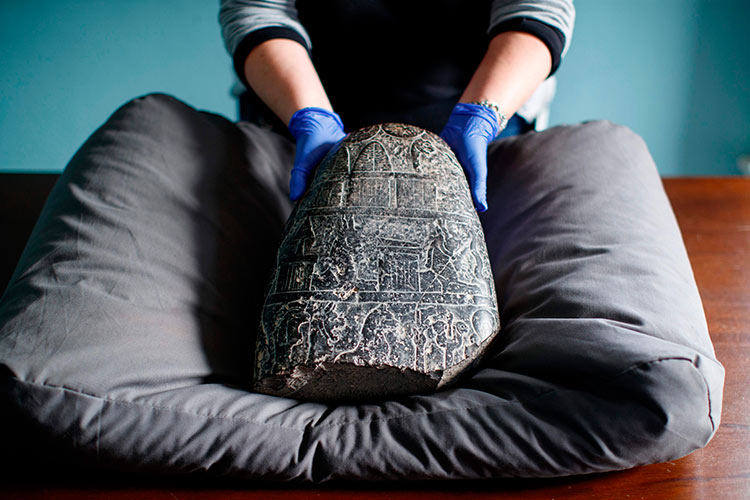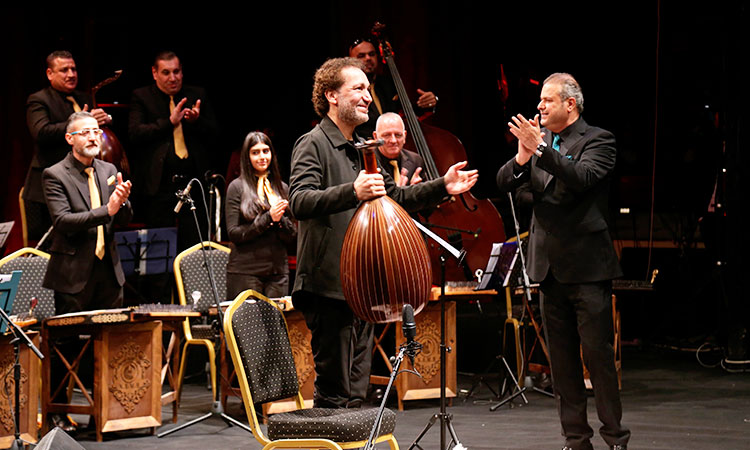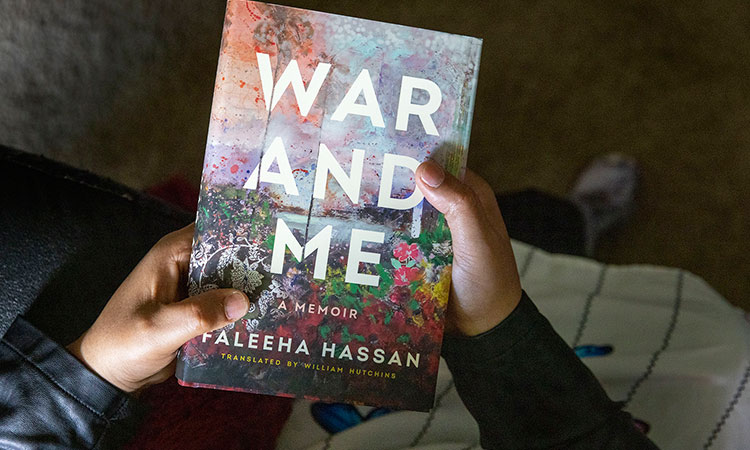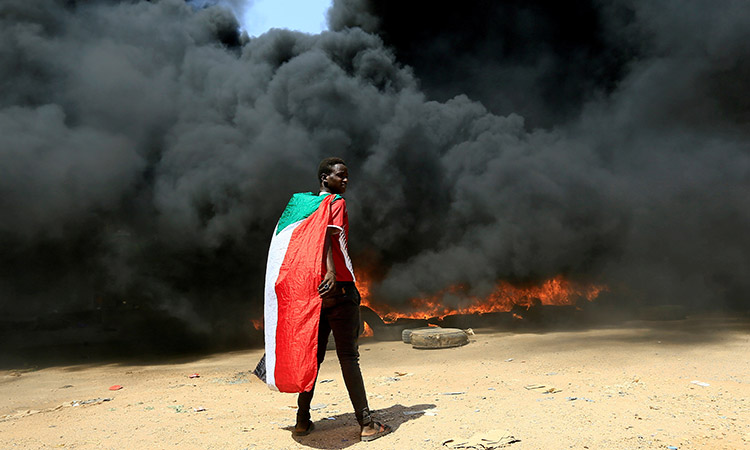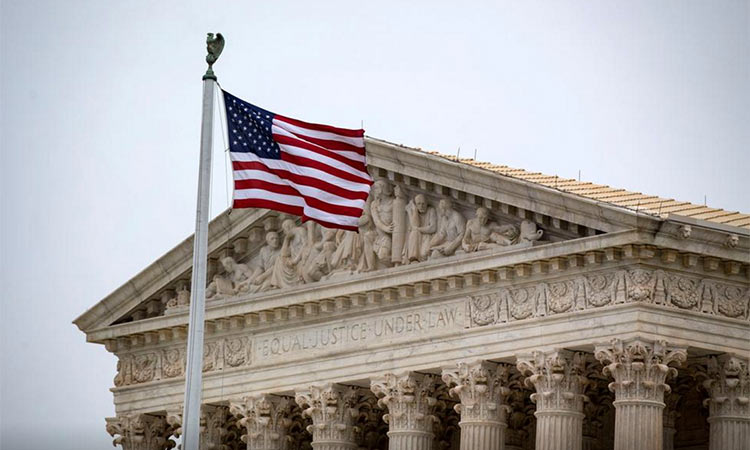Lessons that have not been learnt yet
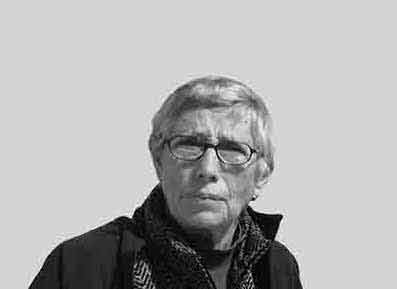
Michael Jansen
The author, a well-respected observer of Middle East affairs, has three books on the Arab-Israeli conflict.
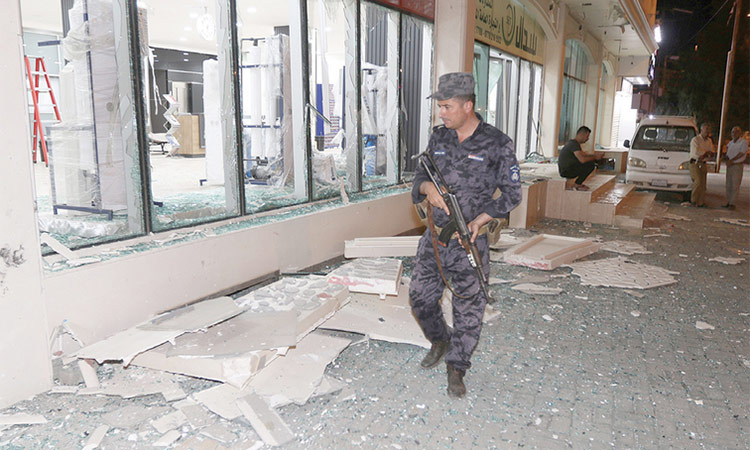
The photo has been used for illustrative purposes. File/Reuters
This battle took place between November 10th and December 10th, 2004.
Ackerman began by saying the commemoration was the 15th since that battle in Iraq where he led a US marine corps platoon. He was awarded a medal for bravery in this offensive. Alongside his article, he included a list of the 21 men in his company who died and shields of the marine corps.
On the fourth day of the battle one marine pleaded to leave as he could only think about his daughter whenever he went into an Iraqi house. He was sent home as being unfit. In my opinion, he was the wisest man in the platoon.
Tank crews hunkered down inside their think armoured vehicles listened to pop music while they waited for instructions about firing their cannon into the city. As Ackerman lay on his stomach during an engagement, a US aircraft bombed the platoon based in a nearby building: this is called “friendly fire.” His platoon moved into another building where they came under sniper fire. On and on he writes, relating his experiences during his month in Fallujah. He kept his tattered and blood-stained uniform, went home and hid it in his basement. The second US battle of Fallujah was the bloodiest in the Iraq war and the most intense urban marine combat since Hue city in Vietnam.
Ackerman graduated from elite universities before he joined the marines and served eight years in this region and Afghanistan. Out of uniform Ackerman became a journalist and author focusing on warfare.
For Iraqis the multiple battles of Fallujah were defensive and counted as resistance against US invaders. Early in 2004, Fallujah and its environs were placed under the control of a marine division. On March 31st, four US private contractors from the infamous Blackwater firm of mercenaries were captured in Fallujah and killed and their bodies mutilated. Five days later, the marines launched a 24-day long operation, the First Battle of Fallujah, to expel insurgents from the city.
After an Iraqi brigade commanded by a former Baathist general took over that May some 500 dedicated insurgents infiltrated Fallujah. They were said to be headed by al-Qaeda›s Abu Musab al-Zarqawi and were, reportedly, joined by 1,000 locals in the Second Battle of Fallujah — described from the US side by Ackerman.
The Iraqis were outnumbered by 13,500 forces from the US, Britain and Iraq with tanks and armoured vehicles and air cover. The usual ratio of three attackers to one defenders was exceeded by the deployment of ten to one.
The US military estimated 70-90 per cent of the city›s 300,000 inhabitants had fled before the attack. There was a big difference between these two figures which may have accounted for high civilian fatalities.
Coalition forces had 107 killed and 613 wounded; US forces 54 killed and 425 wounded. Estimates of insurgent/defender dead ranged between 1,200 to 1,500 while coalition forces captured 1,500.
These figures cannot be correct if the suggestion is that the insurgents/defenders totalled 1,500. Although the Red Cross reported 800 civilians had been killed, this could be an underestimation.
US forces fired more than 5,500 artillery rounds into the city while aircraft dropped 300 precision bombs, 400 rockets and missiles and 93,000 machine gun and cannon rounds.
The devastation was massive. Of the city›s 200 mosques, 60 were destroyed And 7,000-10,000 of Fallujah›s 50,000 buildings were flattened and 50-60 per cent had serious damage. At least 100,000 civilians were rendered homeless and displaced.
The Third Battle of Fallujah during the US occupation took place from September 2006-January 2007 and involved Sunni “Awakening” forces and al-Qaeda allied forces. Daesh took over the city in early 2014 and remained there until the Iraqi army retook the city in the Fourth Battle of Fallujah in June 2016.
One has to ask Mr Ackerman and other US heroes who memorialise their battles in Iraq, what they were doing there in the first place. They were taking part in a war of aggression against a country which did not threaten the US. It was a “war of choice” unleashed to accomplish regime change because Iraq was too independent for Washington to tolerate. US troops had been told they would be received as liberators from a cruel dictator, Saddam Hussein.
The US should have been forewarned by Britain›s failed reign in Iraq and by the 1920 rebellion mounted from Fallujah after Shaikh Dari al-Dari killed a British officer and disrupted rail traffic between the city and Baghdad. The revolt lasted three months and united Sunnis and Shias in the cause of evicting the British from Iraq.
The 1920 rebellion was the first of several Iraqi attempts to gain freedom. More than 400 Britons were killed and 40 million pounds sterling were spent to put down the revolt. While the Iraqis did not win independence, they ended the British military administration, secured Iraqi input in the drafting of a constitution, and installed an Iraqi president and council of state. In 1921 Emir Faisal, who had led the British-backed World War I revolt against the Turks, became king of Iraq.
In 1920 the British army inflicted “heavy punishment” on Fallujah — which was the scene of the first US military fatality in Iraq in 2003. US politicians and soldiers should read history before they mess with the Arabs, particularly the Iraqis.
It is ironic that coinciding with Ackerman›s article, ex-army colonel Andrew Bacevich wrote for Tomdispatch about a visit he paid to the war memorial of the 8,000 US troops, including his son, killed in misbegotten US regional wars.
This memorial is a smaller version of the Vietnam Wall in Washington and is largely unknown and rarely visited. It is located in Marseilles, Illinois, a small, economically deprived mid-Western town with a population of around 5,000. Now an academic and commentator, Bacevich blamed these wars on the “continuing and stubborn refusal among policy makers to own up to their own stupendous folly, and the collective negligence of citizens who have become oblivious to where (US) troops happen to be fighting at any given moment and why.” He is quite right.
